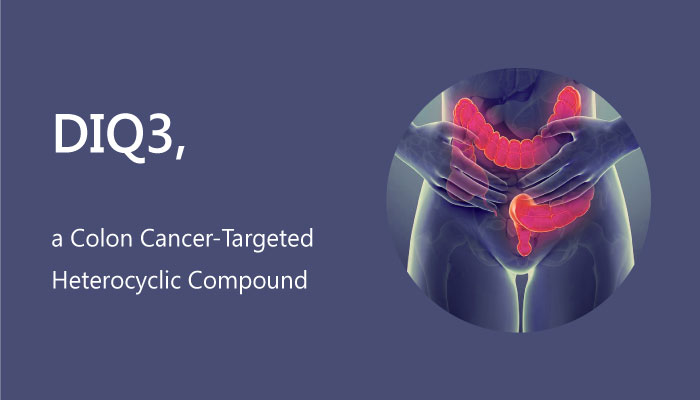As we all know, cancer has become one of the most serious diseases in the world. There are more than 100 types of cancer. Such diseases severely affect patients’ life.
In general, most cancers are because of mutant genes from external factors, such as environmental factors and lifestyle factors. The small part is due to inherited genetics. However, that is not to say a particular cancer results from one cause. Instead, it is caused by multi-factors.
Fortunately, scientists never stop searching for anti-cancer agents. They have been trying to focus on various targets related to cancer. Thus, they know more about the role of the targets in tumorigenesis.
In a recent article, Alissar Monzer, et al told us they found out some related derivatives with potent anti-cancer activity. Compound DIQ3 was the most effective one.
Surely, their first step is to synthesize these analogs. Compounds DIQ3, 4, 6 distinguish from other common compounds.

Based on this difference, researchers carry out a series of assays to identify the potency of these compounds.
To our delight, DIQs exhibit great anti-cancer activity, especially DIQ3. First they choose MTT assay on human colon cancer HCT116 cell lines. The compounds suppress the metabolic activity of the cells. What’s more, DIQ3 shows the inhibitory activity at low concentration. Above all, they have no or little toxicity to normal human fetal intestinal tissue.
The story is not over yet. Reporters study the effect of DIQ3 on enriched population of colon cancer stem/progenitor cells. Surely enough, DIQ (0.1-1 μM) significantly decreases sphere formation of HCT116 cells.
DIQ3 is a promising anti-cancer agent. I hope it will play a vital role in cancer therapy.
Reference:
Monzer A, et al. ACS Omega. 2019 Feb 28;4(2):3205-3212.